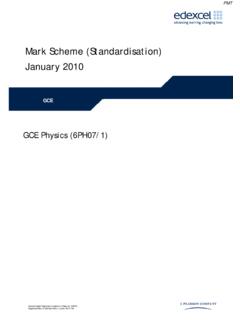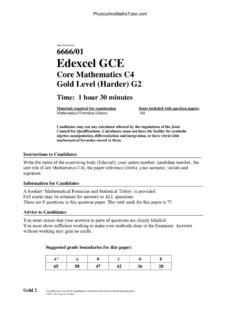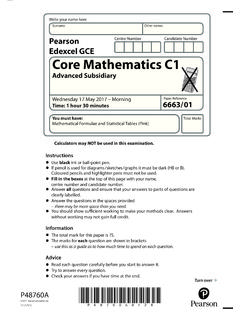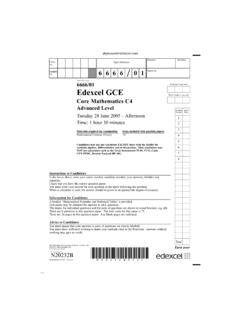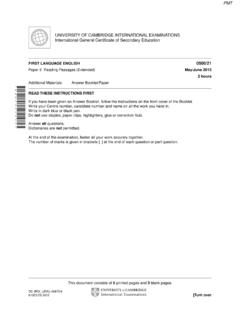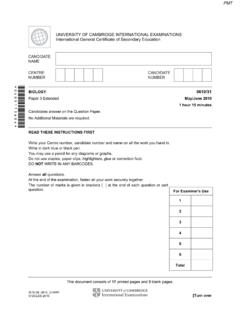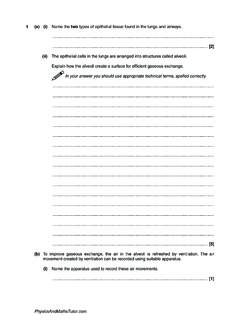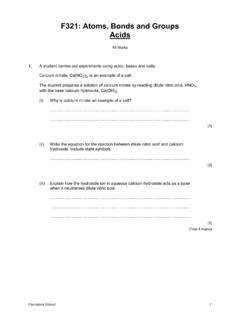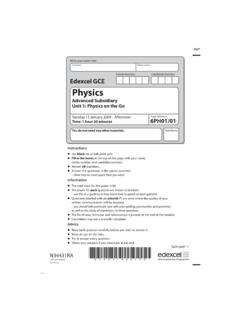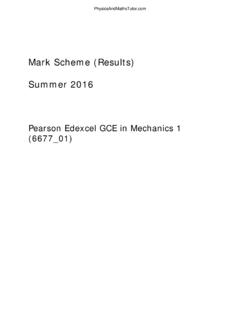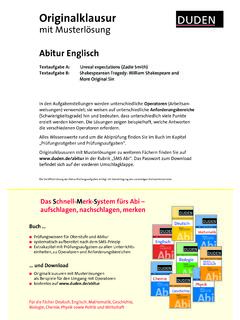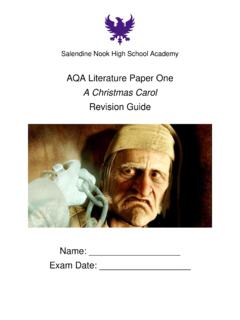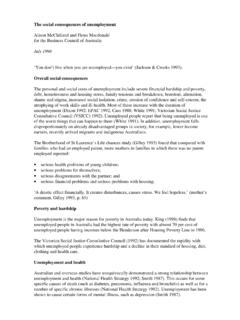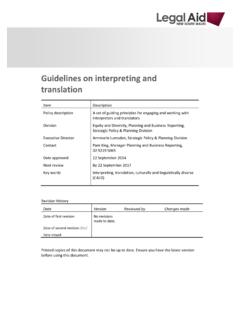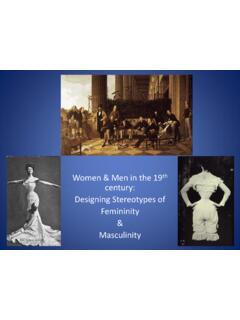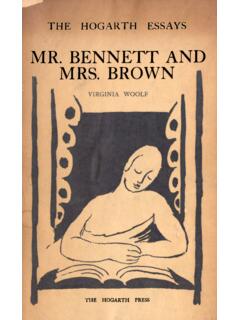Transcription of AQA English GCSE Poetry: Power and Conflict - PMT
1 AQA English GCSE. Poetry: Power and Conflict london - William Blake london . William Blake Brief Summary The poem centres from a first-person perspective on an annoymous speaker (who could be assumed to be Blake). walking through london , and commenting on the filfh and currouption he sees, including the child labour, monarchial abuse, and prostiution he witnesses. It's short and obvious in its criticisms of the authorities which have allowed the city to get into such a dangerous and unpleasant state. Synopsis Walking through the streets of london observing its corruption and dirt Sees signs of sadness and suffering in every person he passes Signs of child labour, church's corruption, the army and the monarchy Sees prostitutes and newborn children Views the carriages of newlyweds as hearses cycle of misery Context William Blake (1757 - 1827).
2 William Blake was an English poet and artist, who was writing during the Romantic literary era . He lived in london for most of his life, and saw it as corrupted by greed and inequality. He thought his city was dirty and corrupt, both literally and metaphorically, and as he thought this was largely due to the political situation lots of his poetry was about political subjects. Poetry was his passion and he would use it to try and instigate change. To help him with this, he would write using simple language so his message was accessible to all. He also stood against oppressing women and supported equality. This is demonstrated by how he educated his wife, teaching her to read and write, and eventually she became his business partner.
3 However, believing in equality for both genders was unusual, and Blake was considered to have radical political views . He was also anti-monarchy and wanted a revolution to remove it, thinking that revolution was inevitable and necessary. He also identified as Christian, but rejected organised religion and established church because he saw it as corrupt and hypocritical. He strongly disagreed with the fact that they put money into new buildings whilst the poor starved. French Revolution london was published during the reign of terror . The French Revolution became an inspiration for many radicals as it was a symbol of how the disenfranchised and oppressed could seize Power from the privileged.
4 It resulted in the end of the French monarchy, which is what Blake was hoping for in England, which ended when Louis XVI was executed in 1793. However, it was followed by "reign of terror", with thousands executed via guillotine. Industrial Revolution England transformed into an industrial Power , and oversaw a mass movement to cities from the countryside. However, this urbanisation led to most of london being covered in smog from factories and industrialisation The term "Chartered" means government gave the wealthy exclusive rights to land and resources that had been previously owned in common, which meant the wealthy started owning monopolies of land. From the collection Songs of Experience' (1794).
5 This was a poetry collection that acted as a companion piece to "Songs of Innocence" (1789), which was focused around the innocence and naivety of children and the beauty and peace of nature, providing simple moral messages. On the other hand, Songs of Experience exposed the corruption and suffering / the harsh reality of the new, changed world and the social issues (such as poverty, child labour and prostitution) that were attached to it. The poems in the Innocence collection have a darker pair in the Experience . collection such as The Lamb and The Tyger , or The Chimney Sweep . These feature in both collections but in the first provide an innocent child's view of the world then the darker pair explores the church and society's role in child labour.
6 These pairings serve to show how innocence is lost with experience of the harshness of reality. However, london has no companion in innocence . The gist of the poem is that london is unambiguously and indubitably corrupt. london Blake explores the theme of authoritarian abuses of Power in his poem which is set in the capital of (arguably) the most important country in the world at the time: london . Blake was a hopeful poet who tried to use his talent at writing to motivate change. Maybe he hoped that readers of london . would consider their own impact on the run down state of the city, and potentially how they could help improve it. He suggests there is a huge issue with the divide between those in Power and those completely void of it, relating to the huge wealth disparity affecting Victorian England.
7 The simplistic structure of four regular stanzas following an alternate rhyme scheme contrasts the complex, seemingly unending issues which Blake sets forth in his work. The poet emphasises with those who have been hurt most by the capitalist structures which cause inequality within society , focusing on their misery. The poem would probably have been considered revolutionary within his society, as he is attacking the establishment'. Overall, he employs an immensely negative tone , which replicates his own disillusionment with both the government and the monarchy, as well as the Church. The title london . london They all been "chartered". so they are effectively The repetition of marks owned and controlled by I wander through each chartered street, demonstrates that this is the wealthy a permanent impact of place's Power with Near where the chartered Thames does flow, Breaks from the iambic wide-reaching and tetrameter used for most exception-free extent.
8 And mark in every face I meet of the remainder of the Also suggests cannot poem, which could reflect remove the impact of the how if people rise up Marks of weakness, marks of woe. suffering they have against institutions of experienced (weakness), Power , they can free and like the branding of themselves from societal cattle,the citizens are restraint. branded too by their In every cry of every man, experiences This is significant because children are supposedly In every infant's cry of fear, born innocent and shouldn't have to suffer. In every voice, in every ban, The phrase incites Adjective blackening is at sympathy in the reader surface level an The mind-forged manacles I hear: and also shows acknowledgement of the pessimistically how every soot and smoke that life is destined for misery.
9 (produced by industrial factories) polluted every Internal oppression and part of london during the How the chimney-sweeper's cry weakness, also a 1700s. Figurative culmination of the suffering interpretation can be experienced in the Every black'ning church appalls , found through the preceding lines. negative connotations of immorality and evil And the hapless soldier's sigh Connotes dismay/horror, derived from black'ning and reflects the lack of It is the moral blackening Runs in blood down palace walls. action of the church, which of the church he is should offer support and referring to. This can be help to the poor, but perceived as a criticism of instead is focused more on organised religion, and its its own wealth.
10 A lack of failure to provide for the But most through midnight streets I hear morality appals those who disadvantaged members (like Blake) believe in the of society. How the youthful harlot's curse true meaning of the bible Importance of loving and Juxtaposed connotations caring for others taught by Blasts the new-born infant's tear, of new beginnings, joy Jesus. It juxtaposes the and happiness of wedding purity and love expected of with the end of life and And blights with plagues the marriage hearse . the religious institution. grief of a hearse. Juxtaposition of innocence of youth with immorality of harlot. Perspective Dramatic Monologue london is written with a first-person speaker speaking passionately about what he sees and experiences, combined with simple language in an almost conversational tone.
